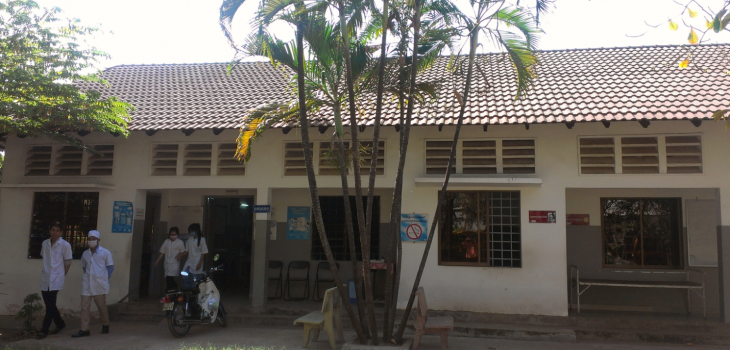By Mishal Khan (London School of Hygiene & Tropical Medicine)
Background
Tuberculosis (TB) is now the leading cause of death from an infectious disease, and in addition to its impact in terms of mortality, TB has considerable social and economic consequences for individuals. Furthermore, the long (6 to 8 month) duration of treatment, and critical need to ensure adherence to treatment in order to avoid generation of drug resistance, places a substantial burden on already overstretched health systems in low- and middle-income countries. TB is not a new disease, however, and was declared a ‘global emergency’ by the World Health Organisation (WHO) in 1993.
While there have been many successes in TB control in recent decades, particularly around standardisation of case management and recording in public health facilities, progress towards disease reduction is far below what is needed and what is planned. If we keep going as we are – with global incidence declining just over one percent per annum – it will take more than 150 years to meet the 2035 End TB targets of reducing deaths by 95% and incidence by 90%. This signals, I believe, a need for critical reflection on the design and implementation of health systems and policies to control TB, and investigations on how to improve our approach to TB control. Here, more health policy and systems research is critical, and has to some extent failed to receive the attention it deserves. For example, the Global Plan to Stop TB 2011–2015 set a target US$10 billion for Research and Development (R&D) across five key areas – drugs, basic science, vaccines, diagnostics and operational research – with health policy and systems research notably lacking.
HPP’s special collection to mark the day
To mark Worl d TB Day, Health Policy and Planning has made some key recent papers freely available in a special collection. It is hoped that these will generate debate and spur future studies to inform policy and public health practitioners and researchers.
d TB Day, Health Policy and Planning has made some key recent papers freely available in a special collection. It is hoped that these will generate debate and spur future studies to inform policy and public health practitioners and researchers.
The global strategy to control TB, which was originally known as DOTS and has now evolved to become the Global Plan to Stop TB, can have a huge influence on national TB control programmes. The first paper in the collection, by Quissel and Walt (2016), examines how a ‘global network’ for TB control formed, how it shaped policy, and factors influencing its effectiveness over time. While having a standardised ‘global’ strategy for TB control – or any disease for that matter – has some advantages, appropriateness for different contexts is a major challenge. This is illustrated by an important study by Birch et al (2016), which raises questions about the requirement for daily observation of treatment, and how best to consider patients’ needs during the lengthy course of treatment. The study, which is available as part of the special collection, found that a requirement to visit a clinic daily to access treatment in South Africa may result patients being more likely to miss treatment.
Of course critiquing existing strategies may well be easier than designing better ones, and a recent systematic analysis (2015) of the emerging TB control strategy in Myanmar highlighted critical gaps in evidence to inform policy and resource allocation. In this setting and many others, policy and public health practitioners are therefore making decisions on how to allocate large sums on donor funding without an evidence base to guide them.
Finally, taking a step back to examine the global TB control strategy and what may have shaped it, a policy analysis by Shearer et al (2016) highlights the important role of changes in institutions and ideas to drive policymaking, but proposes that change in policy networks is a necessary intermediate step. Indeed, although the current approach is to have separate (vertical) disease control programs for TB, HIV, malaria and other diseases, a concern with this is that wider health system issues that are not disease specific get neglected. An example of a wider health system issue that impacts on TB control – engaging with for-profit private healthcare providers dominating health service provision in many low- and middle-income countries – is addressed in the final paper in the collection.
Check out our special online collection put together by Dr Khan to mark #WorldTBDay here: https://academic.oup.com/heapol/pages/world_tb_day_2017.
Also listen to our podcast with Dr Mishal Khan explaining the importance of the day along with how we can keep up the momentum and discussion: http://bit.ly/2ocHiFP.
Mishal was also on facebook.com/financialtimes for an interview with the Financial Times.











